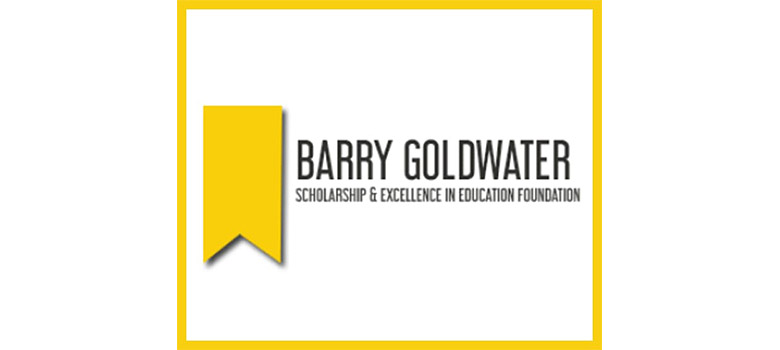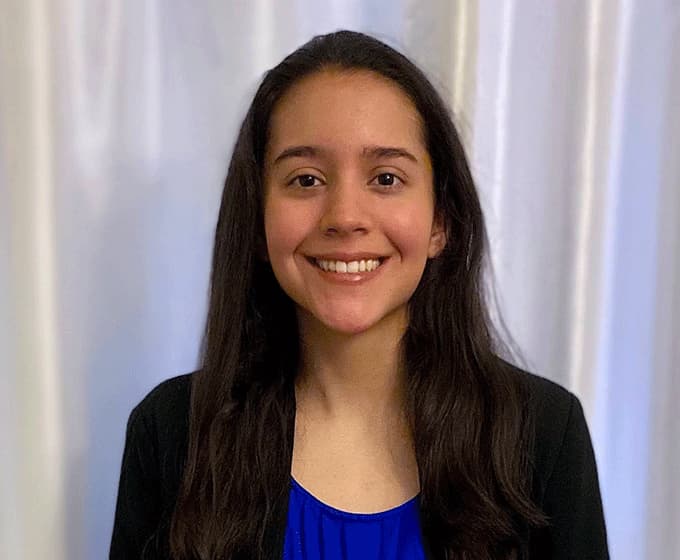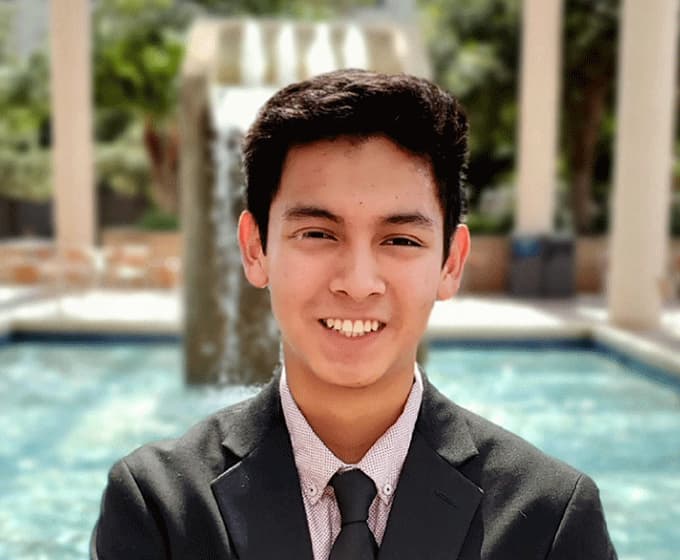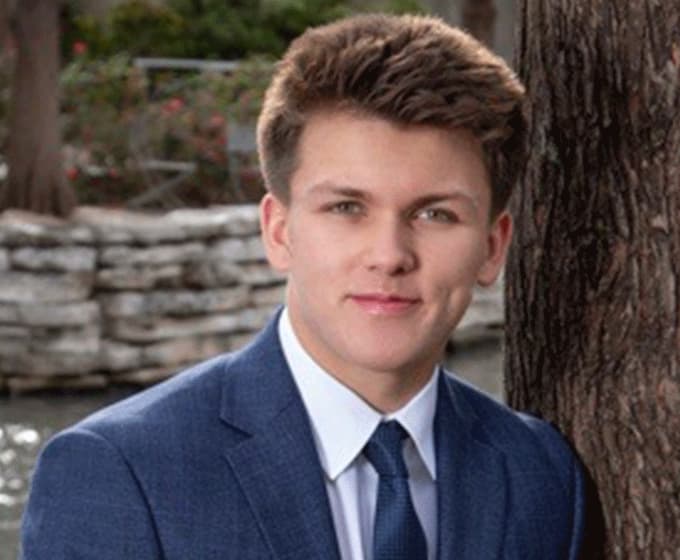Posted on April 15, 2021 by Andrew Chapman

Barry Goldwater Scholars logo
Four UTSA students have been named Barry Goldwater Scholars, the most prestigious national scholarship awarded to undergraduate students engaging in research in the natural sciences, engineering and mathematics. Mariah Antopia (biology), Joshua Chaj Ulloa (chemical engineering), Adam Hooker (electrical engineering), and Tristan Pepper (biomedical engineering) were inducted amongst 410 students as scholars from more than 1,200 applicants and 438 institutions. UTSA had three of only 68 engineering majors named Goldwater Scholars this year.
This year marks UTSA’s best-ever result in the competition, breaking the previous record of two awardees in a year in both 2019 and 2020. UTSA joins just a handful of prominent research institutions this year to have four or more scholars named, including Carnegie Mellon University, University of Michigan, Massachusetts Institute of Technology, and Harvard University. UTSA is the only Texas university this year to receive four awards, with no other institution in the Lone Star State receiving more than two.
“UTSA is a terrific place for undergraduates to obtain research experience even early in their studies.”
Of particular note, three students—Antopia, Chaj Ulloa, and Pepper—all hail from the first cohort of the ESTEEMED Program (Enhancing Science, Technology, Engineering, and Math Educational Diversity) and the UTSA Honors College. ESTEEMED, a NIH/federally-funded program directed by Gail Taylor, trains first-year and second-year students to develop as scholars in biomedical research and pursue a Ph.D. in the biomedical sciences. Antopia, Chaj Ulloa, and Pepper are all sophomores, who competed against juniors in the competition.
Taylor, associate director of STEM initiatives and research training specialist at UTSA, related her excitement for the group. “I am extremely proud of our ESTEEMED trainees and grateful to the National Institutes of Health for awarding the ESTEEMED grant to UTSA,” she said. “Josh, Mariah and Tristan arrived at UTSA, dove into their academics and research projects, and their efforts have been recognized. UTSA is a terrific place for undergraduates to obtain research experience even early in their studies, and I also appreciate the efforts of their research mentors.”




All students in this year’s competition encountered roadblocks due to COVID-19 and the restrictions it placed on in-person research. Many had summer research programs canceled, and all adapted their current projects to conform to virtual environments or pursued new areas of focus that could be conducted in a safely distanced environment.
Despite these obstacles, this was an extremely productive and creative time for the four scholars, as each picked up new skills. Chaj Ulloa worked with his mentor Ye to co-author a book chapter. Antopia found an affinity for computational research, which she had not done before her in-person research was disrupted. This ability to remain resilient and adapt to challenges runs across the 2021 Goldwater Scholar class and was part of the criteria for their selection.
UTSA nominated five students to compete nationally according to their academic excellence, research experience, and intellect demonstrated through a research essay. Also competing was Ivana Chen, who researches hypersonic wind tunnels with Christopher Combs, Dee Howard Endowed Assistant Professor of Mechanical Engineering. She plans to pursue a Ph.D. in aerospace engineering and will be participating in an internship this summer with the aerospace division of Rolls-Royce at NASA’s Stennis Space Center.
Faculty participating in this year’s campus nomination selection were Kiran Bhaganagar (mechanical engineering), Astrid Cardona (biology), Hugo Giambini (biomedical engineering), Gabriela Romero Uribe (chemical engineering), Nicole Wicha (biology), and Andrew Chapman of the Office of Nationally Competitive Awards. The committee selected UTSA nominees out of nine total applicants, but more importantly, provided the nominees with feedback before final submission. The committee would especially like to thank the UTSA faculty and staff who have closely mentored these five students toward great successes in research.
This article was originally published in UTSA Today. You can access the original article via this link
